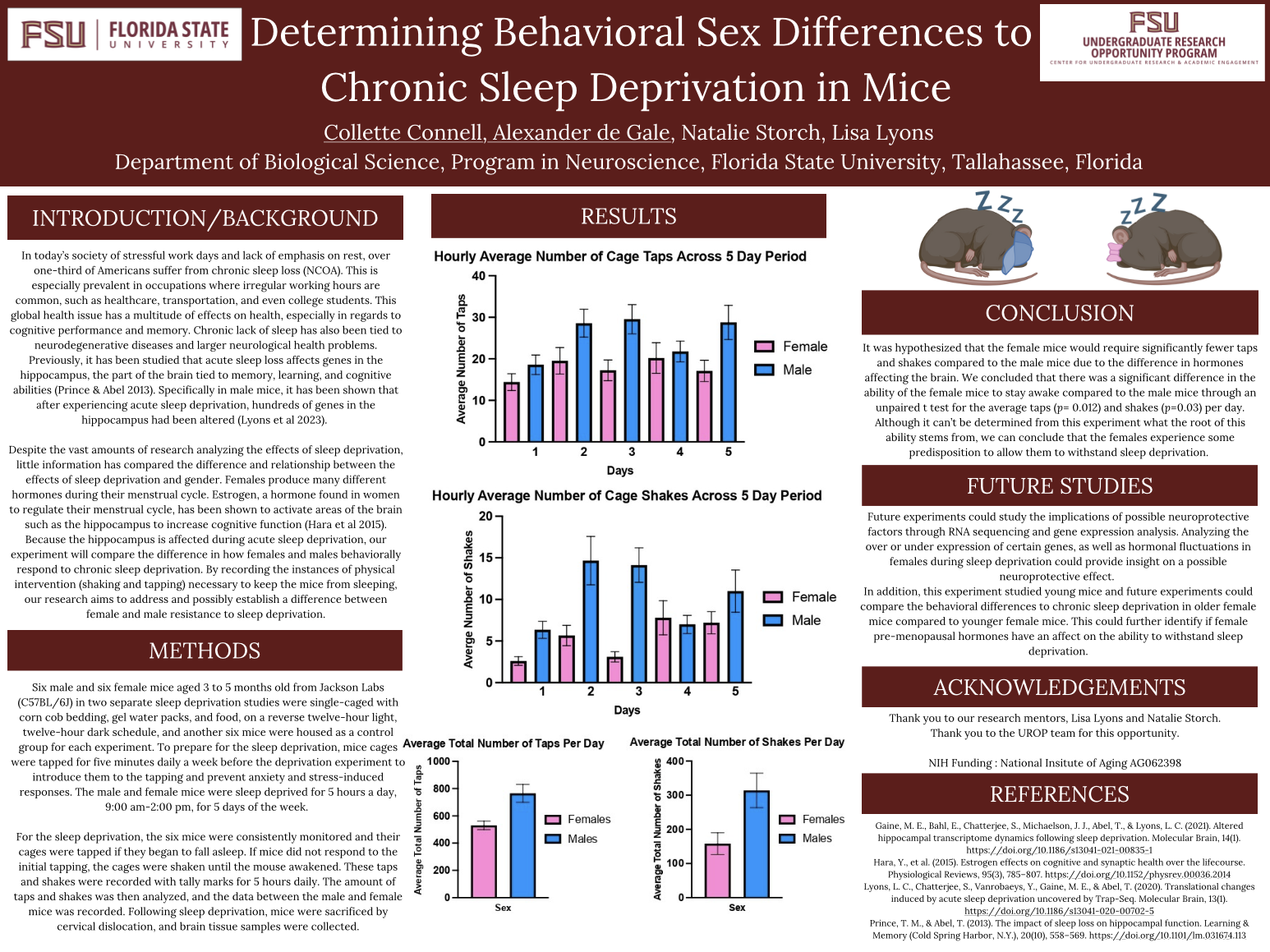Research Symposium
25th annual Undergraduate Research Symposium, April 1, 2025
Alexander de Gale Poster Session 2: 10:45 am - 11:45 am/ Poster #8
BIO
I am a sophomore cell and molecular neuroscience student from Allentown, Pennsylvania passionate about conducting scientific research which I've gotten the opportunity to do through UROP. I am pursuing a career in the medical field where I can apply my curiosity in my work.
Determining Behavioral Sex Differences to Chronic Sleep Deprivation in Mice
Authors: Alexander de Gale, Dr. Lisa LyonsStudent Major: Cell and Molecular Neuroscience
Mentor: Dr. Lisa Lyons
Mentor's Department: Program in Neuroscience Mentor's College: College of Arts and Sciences Co-Presenters: Collette Connell
Abstract
Over one-third of Americans suffer from chronic sleep deprivation in today’s society because of high work demands and added daily stress. Chronic sleep loss can lead to many health and neurodegenerative issues such as anxiety, depression, memory loss, and even Alzheimer's. This project studies the difference between male and female behavioral responses to a later bedtime using physical cues. To conduct this experiment, male and female mice were sleep deprived 5 hours a day, for 5 days to mimic a strenuous work week with hours extending past typical sleep onset. A protocol of manually tapping and shaking the cages when the mice first started to fall asleep was used and tallies of each tap and shake were recorded. This data was then plotted and analyzed in GraphPad Prism. The results show that the female mice required significantly fewer taps and shakes on average compared to the males suggesting they were more active. Future experiments could study the implications of possible neuroprotective factors through RNA sequencing and gene expression analysis. Analyzing the over or underexpression of certain genes, as well as hormonal fluctuations in females during sleep deprivation could provide insight on a possible neuroprotective effect.
Keywords: Neuroscience, Sleep, Sleep Deprivation

